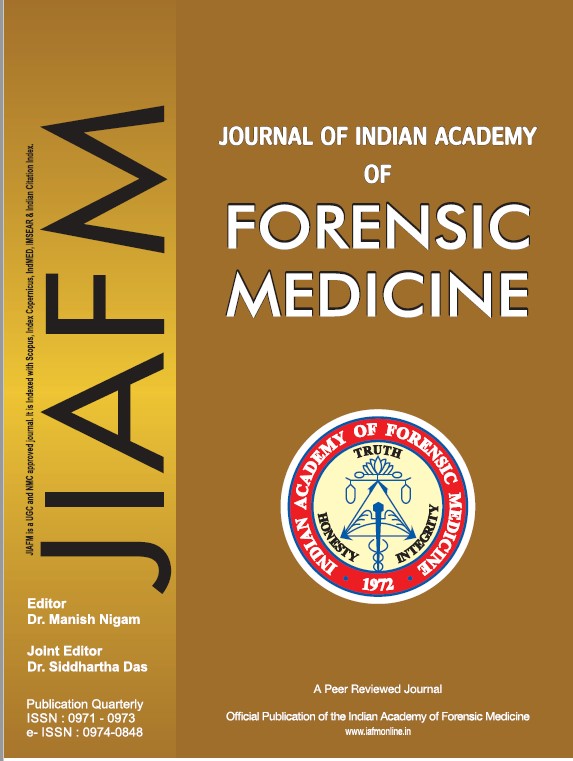Right to Information Act: It's Applicability on Medico-legal cases and Postmortem Reports
Keywords:
RTI Act, Medico-legal cases, Medicolegal reports, Postmortem reports, CIC, Appellate AuthoritiesAbstract
The enactment of Right to Information Act (RTI), 2005 has presented a conflicting situation in relation to professional secrecy, right to privacy and right to information. Moreover, the situation becomes complicated when applicability of RTI Act encounters medicolegal reports and postmortem reports which are impliedly confidential in nature. Many a times doctors involved in managing and writing such reports often faces a dilemma regarding sharing of such reports under RTI Act 2005. There are different views as per the interpretation of RTI act regarding its applicability in medico-legal documents and post-mortem reports. As per Central Information Commission (CIC), Medico-legal Cases (MLCs) and Post-Mortem Reports (PMR) are indeed legal requirements in criminal cases and not prepared at the instance of the patient, but to record injuries inflicted on a person/deceased, to be used by courts in criminal proceedings and hence are not held in fiduciary relation with the patient and that refusal of information under Section 8(1) (e) is unsustainable. Contrastingly, different courts has directed that certified copy of PMR/MLR cannot be issued under RTI and is covered under the exemption of Section 8(1) (j) of RTI Act. Thus, its applicability varies as per the judgments pronounced by different judicial courts of India. This article intends to address contrasting views related to applicability of RTI Act to Medico legal Reports and Post-Mortem Reports and an attempt is made to bring clarity in these matters.


